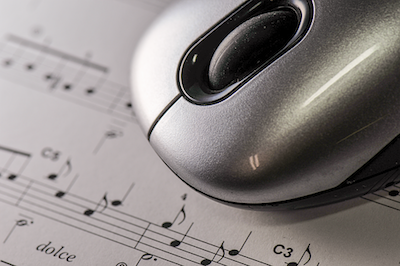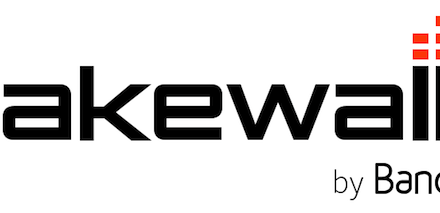Create Music with Notion
After almost two years from its conception, my book, Create Music with Notion, has finally been published by Hal Leonard. This is quite exciting for me and so in this post, I thought I’d tell you a bit about it and also talk a little more about Notion.
As I said in a previous post, in the course of writing this book, I’ve become a believer in Notion. It’s simply the fastest, most intuitive program I’ve ever used. I’ve long used both Finale and Sibelius, so it took a little getting used to as it’s a little different way of thinking. But the funny thing was that that different way was actually much more like when I wrote music with a pencil, but with all the advantages of a computer. You don’t have to do things in any particular order as all tools and elements are accessible all the time. Whatever works for you, works for Notion.
Notion has some really unique features–the best guitar techniques collection, the easiest drumset entry, the best support for Rewire and VSTs–but what really sets it apart is its playback capabilities, simply the best available right out of the box. Everything you enter into the score plays back musically with samples from the London Symphony or Abbey Road studio musicians. While Finale and Sibelius playback has improved over the years, you’d need to pay for a separate sample library, on top of paying more for the program in the first place, to begin to match Notion’s built-in sounds. The program comes with a large enough sample library to satisfy most users, but if the instrument you need isn’t included there are hundreds of specialty instruments you can purchase individually or in bundles. Notion also has by far the best notation app for iOS and files transfer back and forth easily.
The book represents the culmination of twenty-five years of teaching notation software. I started with Finale and its little brother, Music Prose, back in the late 80s, when I was a grad student at the University of Northern Colorado, where I had the good fortune to be part of one of the first big music tech workshops.
We had a stellar faculty. Back then, we all taught software in a step-by-step manner. It seemed very successful and our workshop participants were all satisfied customers. So much so that we often saw them return again and again. Only to take the same classes over again! We were teaching, but they weren’t learning.
The ones who were learning, aside from ourselves, were the regular students who were using the software to accomplish real tasks, projects that were important to them. Whether it be theory homework, arrangements or compositions, it became clear that this is how one learns.
Create Music with Notion is project-based. Each project has a particular user in mind, be it amateur, educator or professional. There are step-by-step instructions that model my workflow, but I tried to focus more on concepts than details. It’s also written so you can substitute your own music for the examples I provide.
In my opinion, Notion should be the goto notation program for most users. The combination of price, features and ease of use can’t be beat. Create Music with Notion is available on Amazon and other retailers. I hope you’ll give both Notion and my book a look.




Good thought here!
I almost spat my orange juice out when I read the line about your best customers taking the same course over!
It’s in perfect example of why students should be learning by working on projects!
Congratulations on the publishing of the book! I look forward to reading it. I have been trying my hardest to REALLY like Notion after using Sibelius since its inception as well as Finale since version 1. One of my last hang ups with Notion is the final product and getting the printed layout to look great.
Rather interesting when two music tech bloggers blog about Notion on the same morning….. One more proof that Notion is making great headway in acceptance and use!
I can make Notion look pretty good. There’s always a decent solution. But it’s not an engraving program. For that, I’ll export to MuseScore via MusicXML. MuseScore does a better job of importing than Finale and Sibelius and the new version has much more powerful tools for layout.
Hey George,
what do you think about the real-time MIDI import on Notion. Is it good?
Oh and have you seen the new release with the improved layout tools? What do you think about them?
Would be great to hear your qualified opinion as I am new to the whole world of “scoring” and interested in different possibilities.
Kind regards,
Fabian
Hi Fabian
Do you mean real-time recording? It’s ok, but as with any notation program, it’s pretty limited. You either have to play really stiff or you’ll end up doing a lot of editing. What we write and what we hear are two very different things.
Short answer on the new version, I do like it. The last two versions have cleaned up about 95% of my issues with Notion. The improved layout is nice, though it slows things down a bit. My review will be out later this month. I’ll keep you posted.
Hi George,
yes, I meant a way to directly input the notes and rhythm while playing it on the midi-keyboard.
I just discovered that the awesome people of the musescore project are developing something similar (have a look at https://musescore.org/en/user/57401/blog/2016/05/07/gsoc-2016-semi-realtime-midi-new-method-note-entry-musescore). Oh and by the way, I really liked your musescore 2 introduction videos, downloaded this awesome program and just started to enter my first notes :).
Thank you for keeping me informed about your experience with Notion 6.
Kind regards,
Fabian
Sorry, I’m so behind. I’m juggling quite a few websites at the moment and missed your reply. I suppose MS had to add real-time entry, though it’s still a method I just don’t use much in any program. Part of that is that my keyboard chops aren’t great, but even with my MIDI guitar, it’s just not accurate enough. The method they are showing here is the same basic idea as Finale’s HyperScribe. It was pretty impressive when it came out, but it’s 25 year old technology. In my opinion, the only way real-time entry will ever be useful is when it can guess what you mean when you play expressively. I suppose that will require AI or some such thing. I’m not holding my breath.